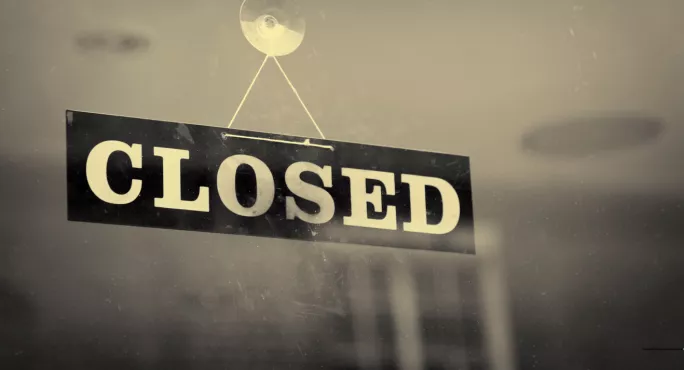- Home
- Coronavirus school closures: What you need to know
Coronavirus school closures: What you need to know

As schools and exam boards draw up contingency plans for a widespread coronavirus outbreak, teachers are preparing for the worst case scenario - when they may be expected to abandon the classroom and attempt to work from home.
As a result, many will be wondering who makes the final decision about if and when a school should close, who they must consult, and what the consequences may be for both teachers and pupils.
Live: Coronavirus and schools - updates for teachers
Coronavirus: Cancelled trips may cost schools millions
Exams: Keep revising as normal, says Ofqual
So schools are closing because of the coronavirus?
Yes. It has been reported that by Thursday there had already been 17 UK schools having to shut to prevent further spread of the virus, but many have since re-opened following a deep clean.
These include a special school near Mitcham, south-west London, and a secondary school in Middlesborough.
Isn’t the official advice for schools not to close?
Yes - at the moment, the advice from Public Health England (PHE) is that schools should remain open unless there is a positive case of coronavirus.
If there is a confirmed case, the school should take a risk assessment with advice from local health teams.
But PHE says that, “in most cases”, closures will be unnecessary.
So why are there already school closures?
PHE says the decision to close a school should be taken locally, and will be “based on various factors such as establishment size and pupil mixing”.
This means schools might close if there is a significant risk of infection, or if there are not enough teachers to cover lessons.
For example, St Mary’s CofE Primary in Gloucestershire closed for two days after a staff member tested positive for the virus.
And Cransley School in Cheshire, shut for a “deep clean” after pupils and teachers returned from a ski trip to the Lombardy region of Italy.
Paul Whiteman, general secretary of school leaders’ union NAHT, said: “School leaders’ first priority is the safety of the children and staff in their schools.
“This means taking many factors into account; not just infection chances but also safe staffing levels, for example.”
Who makes the final call on school closures?
The decision will always be led by the headteacher, according to ASCL - but they will likely consult with several different authorities before a final call is made. These may include:
- Governors
- Local health teams
- Local authorities
Geoff Barton, general secretary of the Association of School and College Leaders (ASCL), said: “Headteachers faced with concerns over the possibility of a coronavirus outbreak would consult with their local health team, trust leader or local authority, and governing body, before making the decision on whether or not to close the school.”
Is the situation different for academies?
Possibly. Leora Cruddas, chief executive of the Confederation of School Trusts, says the person responsible for making the decision will vary depending on the academy’s delegation structure.
Asked who makes the final call in academies, she said: “I can’t answer for the sector because each trust would set that out in their scheme of delegation.
“Sometimes that’s delegated to the principal of the academy, sometimes that has to have the consent of the chief executive or the regional director.
“It’s really, really important to check the scheme of delegation to see where the final decision lies.”
What role will governors play in the decision?
The governing body is responsible for advising senior leadership on key decisions.
But the National Governance Association (NGA) says school closures are an “operational” rather than a strategic decision - meaning the choice lies with the leadership team - but it is expected that governors will be consulted.
An NGA spokesperson said: “School closures ultimately remain an operational decision but headteachers and other senior leaders may well consult with their governing board on this matter.
“However, we believe that school leaders should follow the guidance provided by the Department for Education and that any decision to close the school should be done so under the advice of their local public health protection team.”
What about mass closures?
Other countries hit by the virus, such as Italy, Japan and Iran, have already introduced wholesale closures of schools.
In the UK government’s “action plan”, it says school closures are likely to feature as part of the “delay” phase.
“Action that would be considered could include population distancing strategies (such as school closures, encouraging greater home working, reducing the number of large-scale gatherings) to slow the spread of the disease throughout the population, while ensuring the country’s ability to continue to run as normally as possible,” the plan says.
It adds: “The UK governments’ education departments’ planning assumptions include the possibility of having to close educational settings in order to reduce the spread of infection.”
Tes has asked the Department for Education, The Department of Health and Social Care, and Public Health England, but it remains unclear which authority is responsible for the final call on mass school closures.
The DfE directed the inquiry to Public Health England, but Public Health England told Tes to speak to the DfE or the Department of Health, which told Tes to speak to the DfE.
It is understood that there will be a “cross-governmental decision”.
Keep reading for just £1 per month
You've reached your limit of free articles this month. Subscribe for £1 per month for three months and get:
- Unlimited access to all Tes magazine content
- Exclusive subscriber-only stories
- Award-winning email newsletters



